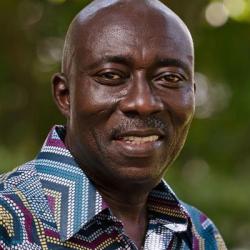CHAT 2024-25 Board Members
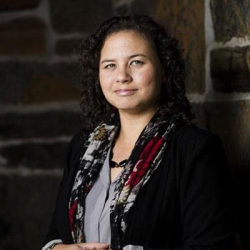
Associate Professor, Studies in Race, Colonialism, and Diaspora
Director, History
Kendra Field is associate professor of history and director of the Center for the Study of Race and Democracy at Tufts University. Field is the author of Growing Up with the Country: Family, Race, and Nation after the Civil War (Yale University Press, January 2018). The book traces her ancestors' migratory lives between the Civil War and the Great Migration. Field also served as Assistant Editor to David Levering Lewis' W.E.B. Du Bois: A Biography (Henry Holt, 2009). Field's research and teaching areas include race, slavery, freedom, migration, and social movements in the long nineteenth century; African-American family history, memory, and public history. Field has been awarded fellowships from the Ford Foundation, the Andrew W. Mellon Foundation, the Huntington Library, and Harvard University's Charles Warren Center in American History. Field's recent articles have appeared in the Journal of American History, the Western Historical Quarterly, and Transition. She is the recipient of the Western Writers of America's, 2017 Spur Award for Best Western Short Nonfiction, the 2016 Boahen-Wilks Prize, and the OAH's Huggins-Quarles Award. Field has advised and appeared in historical documentaries including Henry Louis Gates, Jr.'s "The African Americans: Many Rivers to Cross" (2013) and "Roots: A History Revealed" (2016). Field received her Ph.D. in American History from New York University. She also holds a Master's in Public Policy from Harvard University's Kennedy School of Government and a B.A. from Williams College. Previously, Field served as Assistant Professor of History at the University of California, Riverside, and worked in education and the non-profit sector in Boston and New York.
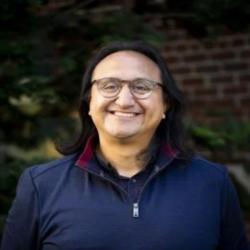
Dr. Guzmán has published on a number of topics including shamanism, urbanism in Mesoamerica, and the political representation of authority in the art and architecture of Post-classic Mesoamerica. He has wide museum experience, consulting on the design and museography of the Museo Arqueológico at the Olmec site of La Venta, 1994-1997; from 1998-2000 was a member of the conceptual development team and curated ephemera, architectural drawings and mural selections for the Los Angeles County Museum of Art's exhibition Made In California: Art, Image and Identity, 1900-2000; and coordinated, developed and authored The Latino Museum in Los Angeles's Curriculum Guide, in 2003. He is currently completing a book manuscript entitled, Politics and the Fabrication of Authority; Artistic Diplomacy and Imaged Expressions of Plurality at the Mexica Templo Mayor, that explores the ways the Mexica used visual culture to gain their eminent authority and supremacy and is working with Dennis Carr on a major exhibition and accompanying book publication entitled, Houses of the Royal Eagle, the Mexica and Habsburg Empires, to commemorate the 500 anniversary of the fateful meeting of worlds and conquest of Mexico. The exhibition is scheduled to open October 2021 at the Museum of Fine Arts, Boston. Dr. Guzmán is the current chair of the Visual and Material Studies Department and is serving a two-year term, 2017-2019, in the Tufts Faculty Senate.

Theatre, Dance, and Performance Studies
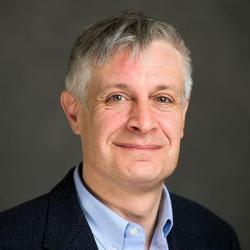
Professor, Political Science
Professor, Philosophy
Lincoln Filene Professorship in Citizenship and Public Affairs, Tisch College
Peter Levine is the Associate Dean of Academic Affairs and Lincoln Filene Professor of Citizenship & Public Affairs in Tufts University’s Jonathan Tisch College of Civic Life. He also appointments in Tufts' Political Science Department (tenure home), Philosophy Department, Science & Technology Studies, International Relations, and the Tufts Clinical and Translational Sciences Institute. He was the founding deputy director (2001-2006) and then the second director (2006-2015) of Tisch College's CIRCLE, The Center for Information and Research on Civic Learning and Engagement. In addition, Levine co-leads the Civic Studies major, teaches the Summer Institute of Civic Studies, and organizes the annual Frontiers of Democracy conference. Trained as a moral/political philosopher, Levine has spent most of his career conducting applied empirical research and organizing professional efforts related to civic life in the United States, including sustained work on civic education, voting rights, public deliberation, and social movements. In the domain of civic education, Levine was a co-organizer and co-author of The Civic Mission of Schools (2003), The College, Career & Citizenship Framework for State Social Studies Standards (2013) and The Educating for American Democracy Roadmap (2021). The first two are the sources of the “six promising practices” and the notion of “taking informed action” that are widely found in state and local policies and curricula. The last was released in 2021 and is receiving prominent attention. He studied philosophy at Oxford on a Rhodes Scholarship, receiving his doctorate in 1992. From 1991 until 1993, he was a research associate at Common Cause. From 1993-2008, he was a member of the Institute for Philosophy & Public Policy in the University of Maryland's School of Public Policy. During the late 1990s, he was also Deputy Director of the National Commission on Civic Renewal. Levine has published 11 books--most recently, What Should We Do? A Theory of Civic Life (Oxford University Press, 2022). He has served on the boards or steering committees of AmericaSpeaks, Street Law Inc., the Newspaper Association of America Foundation, the Campaign for the Civic Mission of Schools, Discovering Justice, the Kettering Foundation, the American Bar Association Committee’s for Public Education, Everyday Democracy, and the Deliberative Democracy Consortium.

John Lurz's academic focus is in Nineteenth- and Twentieth-century British Fiction, especially James Joyce and Virginia Woolf; Literary Theory: semiotics, deconstruction, psychoanalysis, phenomenology; Media studies and the history of the book; Roland Barthes; Proust
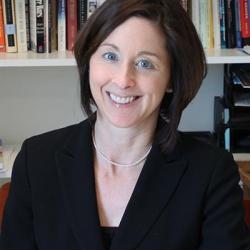
Warren S. Woodbridge Professor in the Department of Religion
